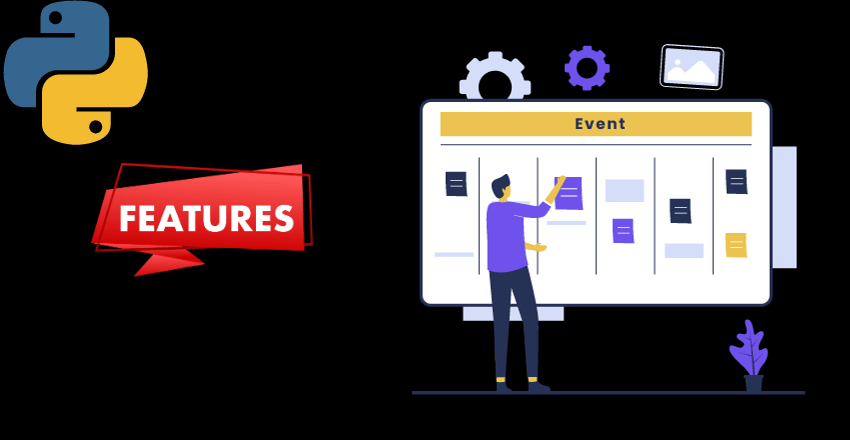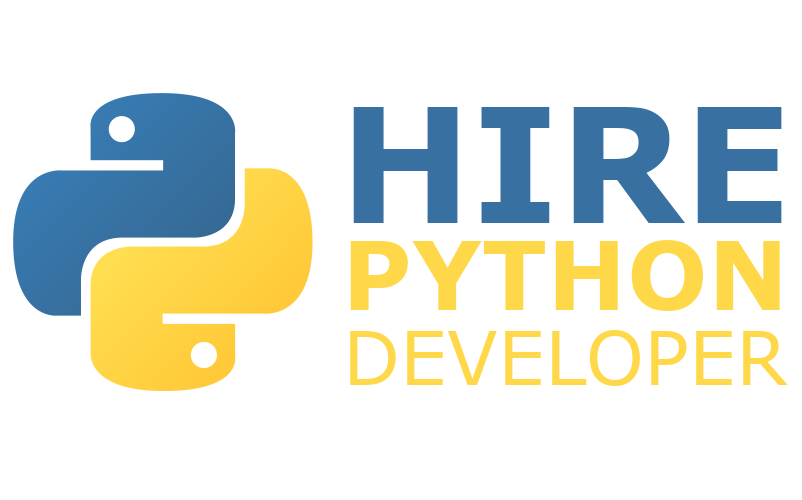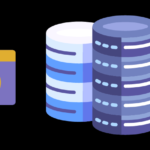 If you’re looking for a solution to streamline your event management process, you may want to consider Python event management software. Python is a popular programming language known for its simplicity and versatility. Using this software can improve the efficiency of your event planning, boost engagement, and elevate the overall event experience.
If you’re looking for a solution to streamline your event management process, you may want to consider Python event management software. Python is a popular programming language known for its simplicity and versatility. Using this software can improve the efficiency of your event planning, boost engagement, and elevate the overall event experience.
With Python solutions for event management, you can manage various aspects of your event without much hassle. The program features capabilities like attendee registration, ticketing, scheduling, and analytics. All of these features can be customized to meet your event’s specific requirements.
Leveraging Python for Building Event Management Solutions
Python is a popular programming language that offers a wide range of benefits for building event management solutions. Its flexibility and scalability make it an ideal choice for customizing and adapting software to meet specific event requirements.
One of the advantages of using Python for event management solutions is its simplicity. Python code is easy to read and understand, which means developers can quickly grasp the codebase and make changes as needed. Additionally, Python offers a large library of modules and frameworks that can simplify the development process.
Let’s say you want to build a registration system for your event. With Python, you can use the Django framework to quickly create a web application that can handle user registration and authentication.
Here’s an example of code in Python using the Django framework:
from django.contrib.auth.models import User
user = User.objects.create_user('myusername', 'myemail@example.com', 'mypassword')
user.first_name = 'John'
user.last_name = 'Doe'
user.save()In this example, we’re using the Django framework to create a new user and save their information to a database. This code is concise and easy to understand.
Python is also highly scalable, making it well-suited for event management solutions of all sizes. Whether you’re handling a small event or a large-scale conference, Python can handle the workload. Its ability to integrate with other technologies and systems also makes it a flexible choice for event management.
In comparison to other programming languages, Python may have a slightly steeper learning curve for some developers. However, its simplicity and flexibility make it a worthwhile investment for building successful event management solutions.
Features of Python Event Management Software

Python event management software offers a range of features that can enhance the planning, execution, and analysis of events.
Some of the key features of Python event management software include:
| Feature | Description |
|---|---|
| Attendee Registration | Allows attendees to register for events online, providing a seamless and convenient process to manage attendee data and track event capacity. |
| Ticketing | Enables ticket sales and distribution, enabling organizers to generate revenue and manage access to events. |
| Scheduling | Facilitates the creation and management of schedules for events, streamlining the planning process and ensuring events run smoothly. |
| Analytics | Provides data analysis and reporting capabilities, enabling organizers to evaluate event success, attendee satisfaction, and identify areas for improvement. |
Additionally, Python event management software often includes features such as social media integration, mobile app compatibility, and live streaming capabilities to enhance event engagement and reach a wider audience. The flexibility of Python also allows for customization and integration with existing systems, providing a tailored and seamless event management experience.
Comparing Python Event Management Software with Other Frameworks
When it comes to event management, there are several software solutions available, each with its own unique advantages and disadvantages. Python is a popular choice for building event management software due to its flexibility and scalability, but how does it compare to other frameworks?
Let’s compare Python event management software with two other popular frameworks: Ruby on Rails and Java Spring.
Ruby on Rails vs Python Event Management Software
Ruby on Rails is a popular web development framework that’s known for its simplicity and ease of use. It’s often used for building dynamic web applications, including event management software. However, compared to Python, Ruby on Rails has a steeper learning curve and is less flexible in terms of customization.
Here’s an example of how attendee registration might be implemented in Ruby on Rails:
def create
@attendee = Attendee.new(attendee_params)
if @attendee.save
redirect_to @attendee
else
render 'new'
end
endWhile this code functions well in Ruby on Rails, there are limits to how much it can be customized to meet specific event requirements.
Java Spring vs Python Event Management Software
Java Spring is another popular framework for building web applications, including event management software. It’s known for its reliability and robustness, but it can be more complex to work with than Python.
Here’s an example of how attendee registration might be implemented in Java Spring:
@PostMapping("/attendees")
public String addAttendee(@ModelAttribute("attendee") Attendee attendee, Model model) {
model.addAttribute("firstName", attendee.getFirstName());
model.addAttribute("lastName", attendee.getLastName());
model.addAttribute("email", attendee.getEmail());
model.addAttribute("ticketType", attendee.getTicketType());
return "attendee/show";
}This code is more verbose than the previous example and requires a deeper understanding of Java and Spring. However, for events that require a lot of customization and integration with existing systems, Java Spring may be a better choice than Ruby on Rails.
Ultimately, the choice between Python event management software and other frameworks depends on the specific needs of each event. Python is often the best choice for events that require flexibility and ease of use, but for more complex events, other frameworks may be more suitable.
Maximizing Engagement with Python Event Management Software
One of the key advantages of using Python event management software is the ability to maximize attendee engagement during events. The software provides numerous features such as live polling, interactive sessions, and networking opportunities that can enhance the event experience for attendees.
Live polling is a feature in Python event management software that allows event organizers to gather real-time feedback from attendees. This can be particularly useful during sessions or presentations, as it enables presenters to adjust their content based on the feedback they receive.
By using Python event management software, live polling can be easily integrated into an event and help to create a more engaging and interactive experience for attendees.
Interactive sessions are another feature of Python event management software that can enhance attendee engagement. These sessions allow attendees to participate in the event in a more active and hands-on way. For example, during a panel discussion, attendees can submit questions through the software, which can then be answered by the panelists. This creates a more engaging and collaborative event experience.
Networking opportunities can also be facilitated through Python event management software. The software can provide attendees with a platform to connect with one another, either through a virtual event or in-person. Attendees can view profiles of other attendees and schedule meetings with each other, which can help to foster new relationships and collaborations.
Incorporating these engagement features into an event with Python event management software can lead to more positive attendee experiences and increased satisfaction.
Integrating Python Event Management Software with Existing Systems
Integrating Python event management software with existing systems or software solutions can increase the efficiency of event management processes. The integration can be achieved through APIs or webhooks, which allow for seamless data exchange between different software systems.
Python event management software can easily be integrated with other systems, such as customer relationship management (CRM) or email marketing platforms. For instance, by integrating the event management software with a CRM system, the event planner can automatically transfer attendee data to the CRM system for future marketing campaigns or follow-ups.
Python’s flexibility and scalability make it an ideal language for integrating different software systems. With the help of Python libraries, such as Requests, Flask, and Django, developers can create custom APIs or webhooks to communicate between different software systems.
| Benefits of System Integration | Example Code Snippet |
|---|---|
| Efficient data exchange between different software systems | import requests |
| Streamlined event planning and management | import flask |
| Enhanced data analysis and reporting | attendee.email = ‘newemail@example.com’ attendee.save() |
When integrating Python event management software with existing systems, developers should follow the best practices of software integration to ensure smooth communication between the systems. They should also test the integration thoroughly before deploying it to a production environment.
Customizing Python Event Management Software

One of the key advantages of using Python event management software is the flexibility and customization options available. The software can be easily modified and adapted to meet specific event requirements, allowing for a more tailored and personalized event experience.
There are several ways to customize Python event management software, including modifying existing functionalities, adding new features, and integrating with other software solutions. For example, event organizers can customize the software’s registration process to include additional information or create custom tickets with unique designs.
Python’s flexibility also allows for easy integration with other systems, such as customer relationship management (CRM) software and event marketing platforms. By integrating different systems, event organizers can streamline the planning process and simplify data management.
Here is an example of customizing the registration process in Python event management software:
# Define a custom registration form
Field Type Required Name Text Yes Company Text No Yes Phone Number No
By customizing the registration form in this way, event organizers can collect more detailed information from attendees and tailor their event communications accordingly.
Python event management software also offers a range of customization options for branding and design. Event organizers can modify the software’s color scheme, logos, and fonts to align with their brand identity. Additionally, Python frameworks such as Django provide templates and themes that can be customized to create a unique event website.
Here is an example of customizing the design in Python event management software using Django templates:
# Define a custom template for the event website
<html>
<head>
<title>My Event</title>
</head>
<body>
<div id="header"><img src="logo.png"></div>
<h1>My Awesome Event</h1>
<p>Join us for an unforgettable experience!</p>
<div id="registration-form"></div>
</body>
</html>With these customization options, Python event management software can be tailored to meet the unique needs and requirements of any event, and provide a fully branded and personalized experience for attendees.
Conclusion: Elevating Event Management with Python
Python event management software offers numerous benefits that can enhance the planning, execution, and overall experience of events. By streamlining planning processes, boosting attendee engagement, and providing valuable insights through analytics, Python solutions for event management can help organizers achieve success.
With the flexibility and scalability of Python, event management solutions can be customized and adapted to meet specific requirements. The language’s versatility also makes it an ideal choice for integrating with other software solutions to create a seamless experience for organizers and attendees alike.
Current industry trends suggest that Python event management software is gaining popularity in the event planning space. Research and industry examples demonstrate how Python can be leveraged for successful event execution, attendee engagement, and enhanced outcomes.
FAQ

Q: What is Python event management software?
A: Python event management software is a software solution specifically designed for planning, organizing, and managing events. It leverages the Python programming language to provide robust functionalities and streamline the event management process.
Q: What are the benefits of using Python event management software?
A: Using Python event management software offers several benefits. It allows for efficient planning and organization of events, improves attendee engagement through interactive features, and enhances the overall event experience. Additionally, Python’s flexibility and scalability make it suitable for handling various aspects of event management.
Q: What features does Python event management software offer?
A: Python event management software offers a range of features to enhance the event planning and execution process. These include attendee registration, ticketing, scheduling, analytics, and more. The software aims to provide a comprehensive solution for all event management needs.
Q: How does Python event management software compare to other frameworks?
A: Python event management software stands out due to its unique features and advantages. When compared to other popular event management frameworks, Python offers a more flexible and scalable programming environment. It also has a large community of developers, extensive libraries, and a wide range of resources available, making it a preferred choice for many event management solutions.
Q: How can Python event management software maximize attendee engagement?
A: Python event management software offers various features to maximize attendee engagement. These can include live polling, interactive sessions, networking opportunities, and personalized content delivery. By leveraging these features, event organizers can create a more engaging and interactive experience for attendees.
Q: Can Python event management software be integrated with existing systems?
A: Yes, Python event management software can be integrated with existing event management systems or other software solutions. Through proper integration techniques and APIs, event organizers can ensure seamless data synchronization and communication between different systems.
Q: Can Python event management software be customized?
A: Yes, Python event management software offers customization options to meet specific event requirements. This flexibility allows event organizers to modify and adapt the software according to their unique needs, ensuring a tailored event management solution.
Q: Are there any successful events that used Python event management software?
A: Many successful events have utilized Python event management software to streamline their processes and enhance attendee experiences. These events have seen improved outcomes, increased attendee satisfaction, and overall success. Real-life case studies demonstrate the positive impact of Python event management software in the event industry.
Q: How can Python event management software elevate event management?
A: Python event management software elevates event management by providing a comprehensive solution for planning, organizing, and managing events. Its streamlined functionalities and interactive features boost engagement, improve attendee experiences, and help event organizers deliver successful events. By leveraging Python, event management can be taken to new heights.
Lydia is a seasoned technical author, well-versed in the intricacies of software development and a dedicated practitioner of Python. With a career spanning 16 years, Lydia has made significant contributions as a programmer and scrum master at renowned companies such as Thompsons, Deloit, and The GAP, where they have been instrumental in delivering successful projects.
A proud alumnus of Duke University, Lydia pursued a degree in Computer Science, solidifying their academic foundation. At Duke, they gained a comprehensive understanding of computer systems, algorithms, and programming languages, which paved the way for their career in the ever-evolving field of software development.
As a technical author, Lydia remains committed to fostering knowledge sharing and promoting the growth of the computer science community. Their dedication to Python development, coupled with their expertise as a programmer and scrum master, positions them as a trusted source of guidance and insight. Through their publications and engagements, Lydia continues to inspire and empower fellow technologists, leaving an indelible mark on the world of scientific computer science.


![15 Most Contributed Python Projects on GitHub [Stats]](https://hirepythondeveloper.com/wp-content/uploads/2024/03/15-Most-Contributed-Python-Projects-on-GitHub-Stats-1-150x150.png)




